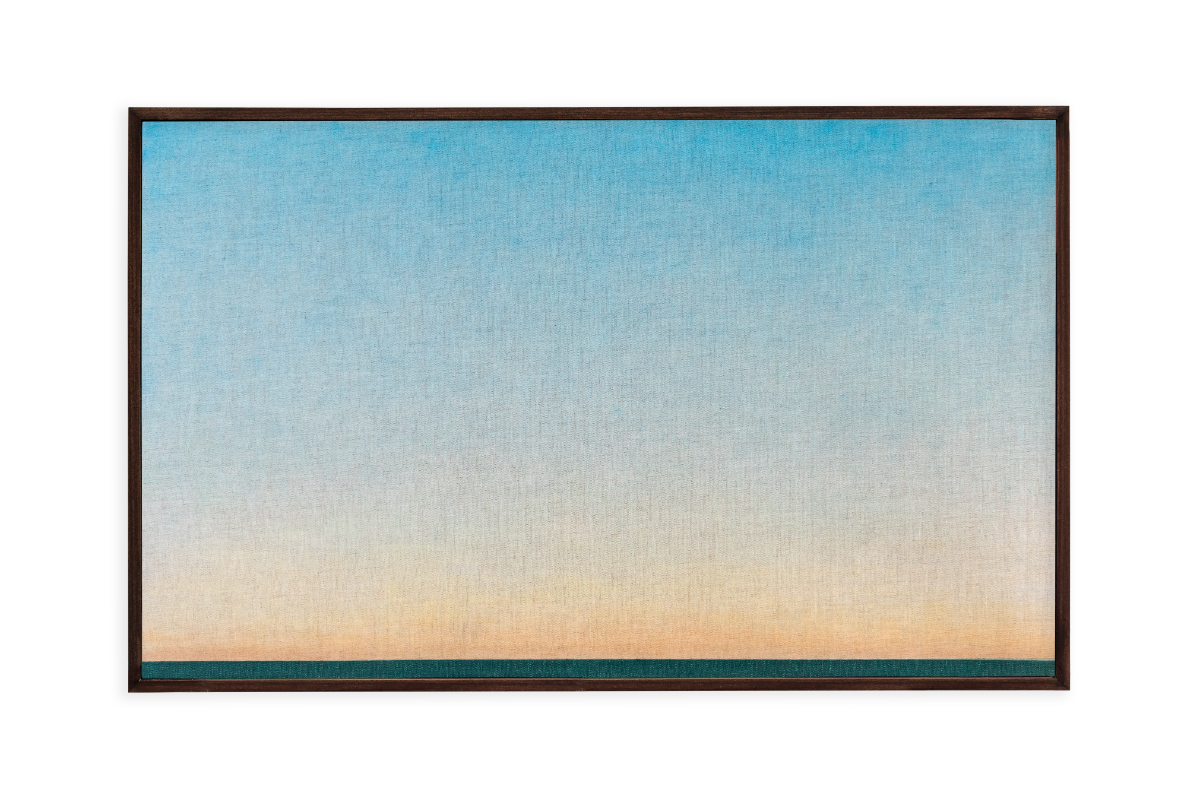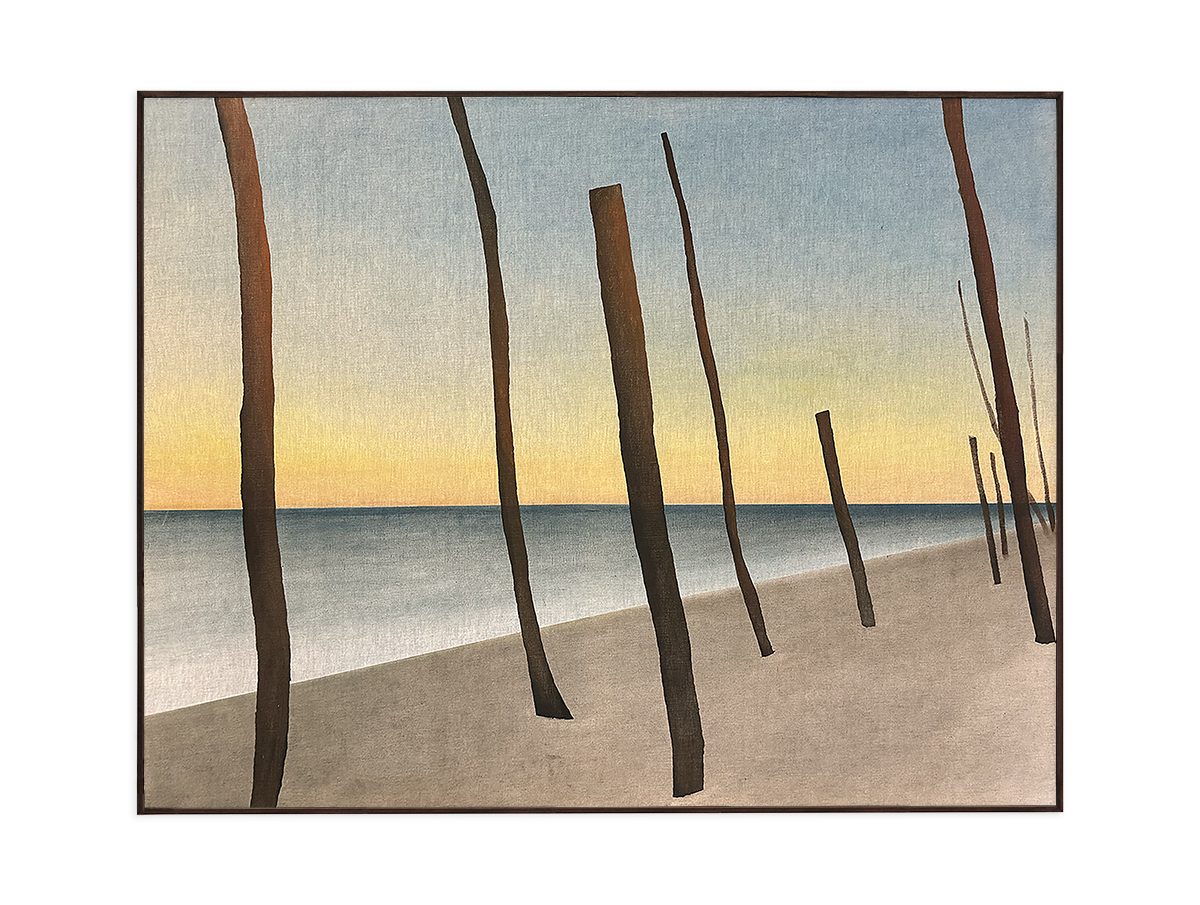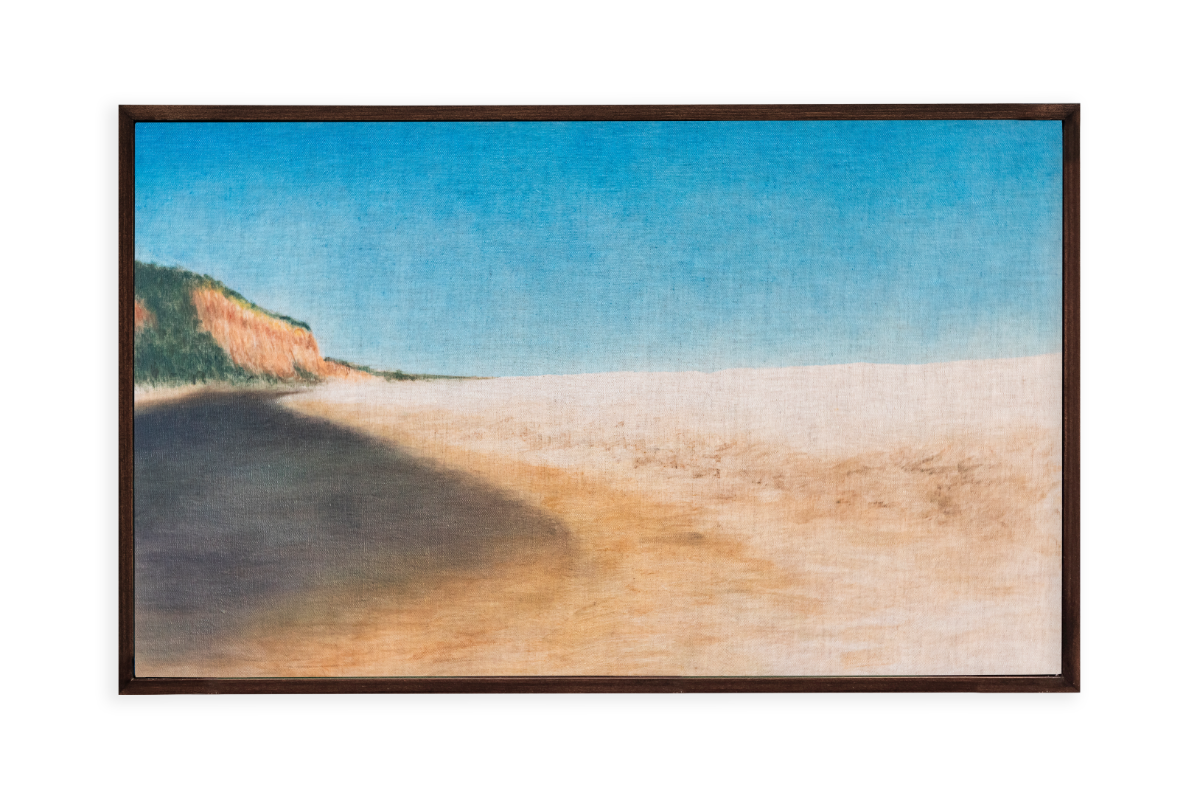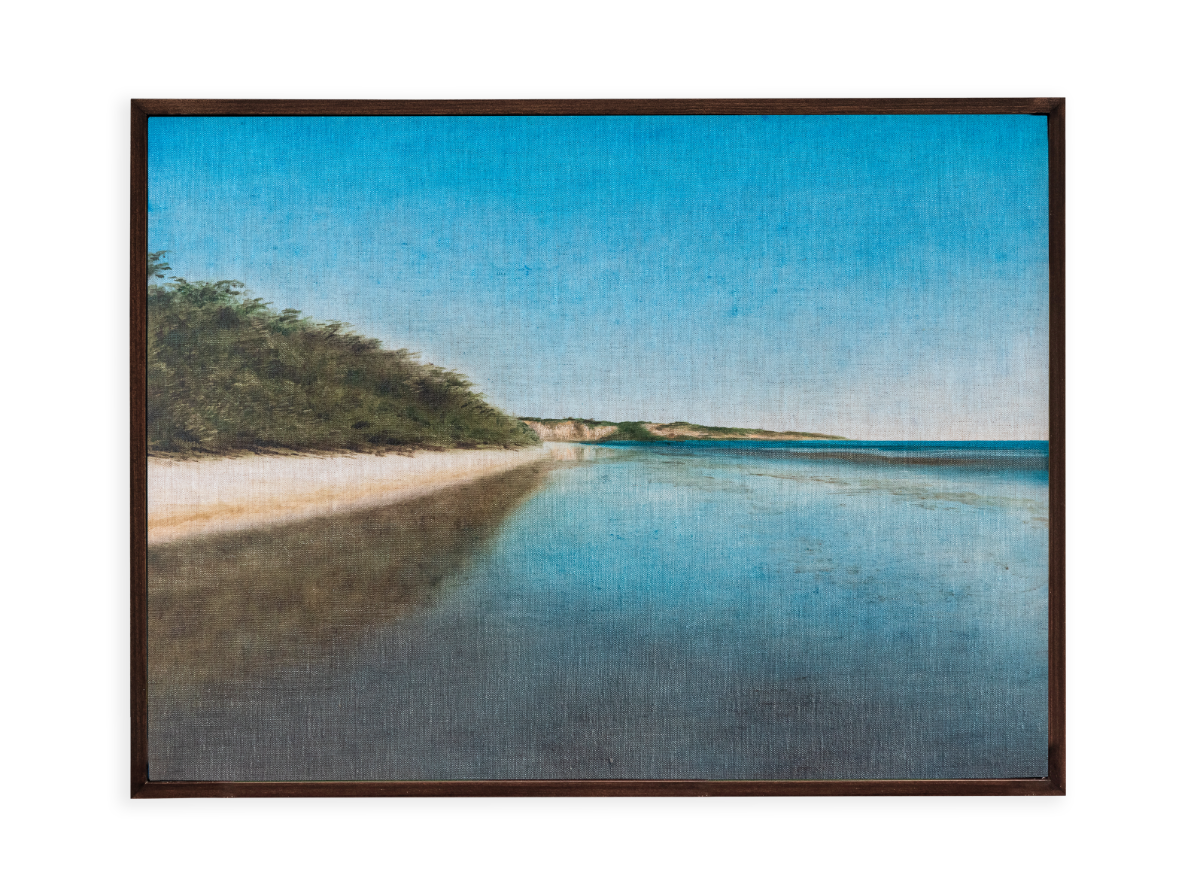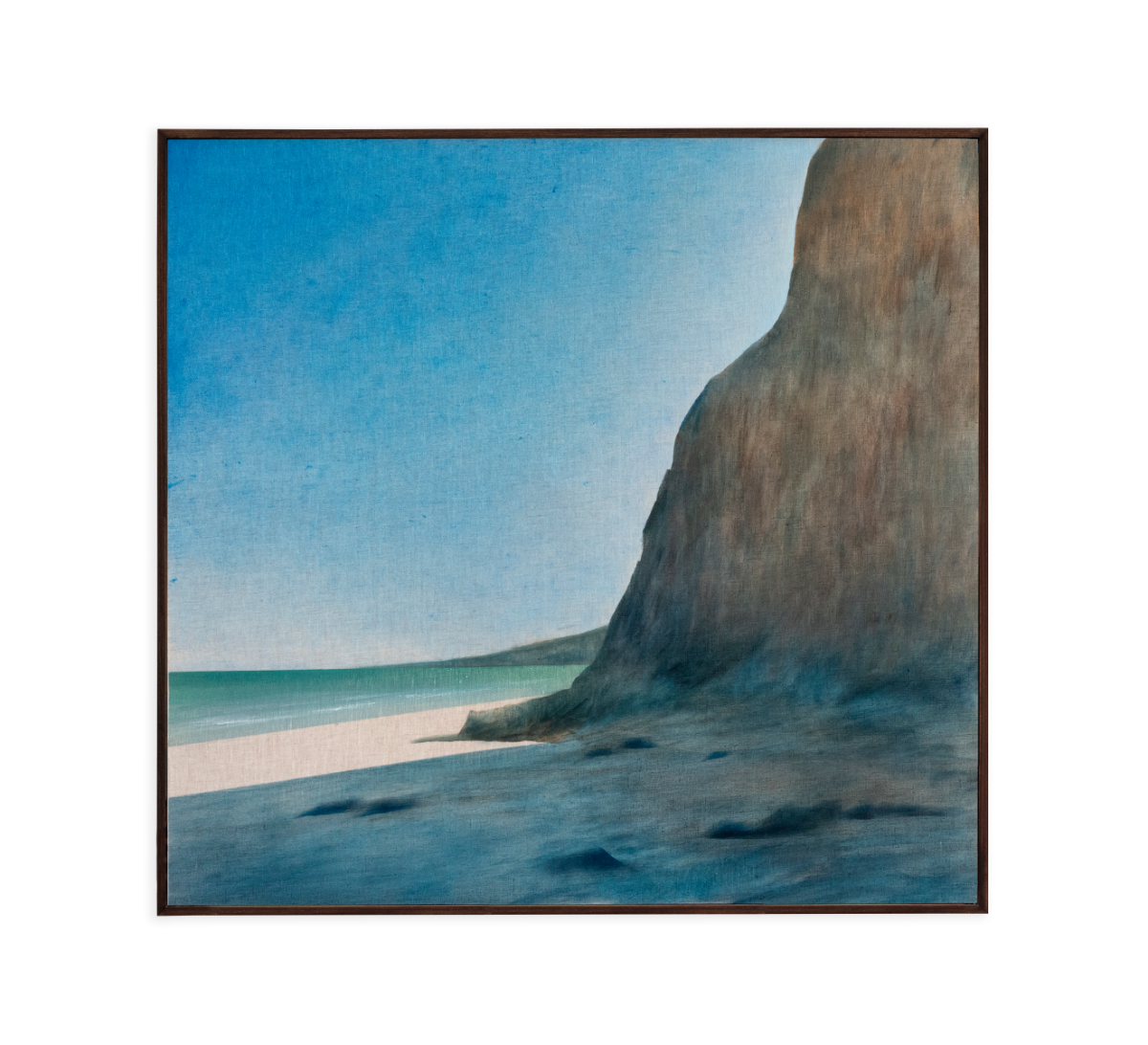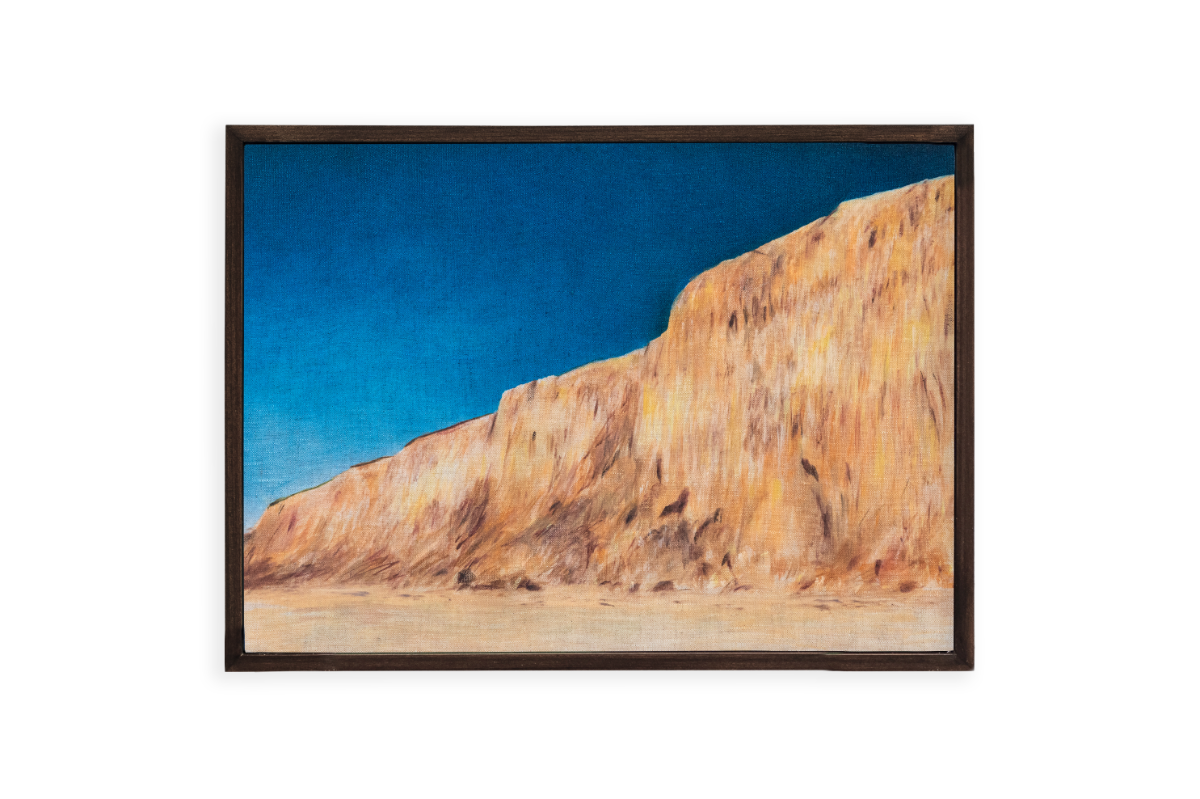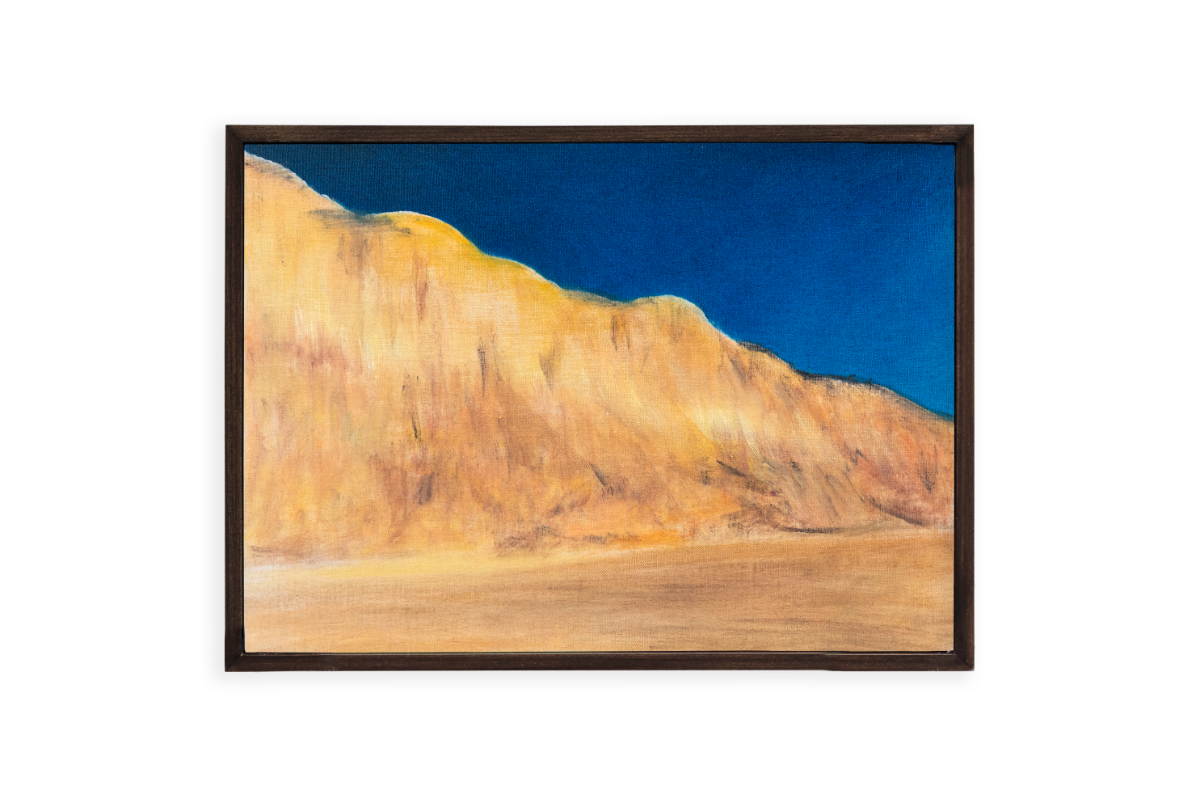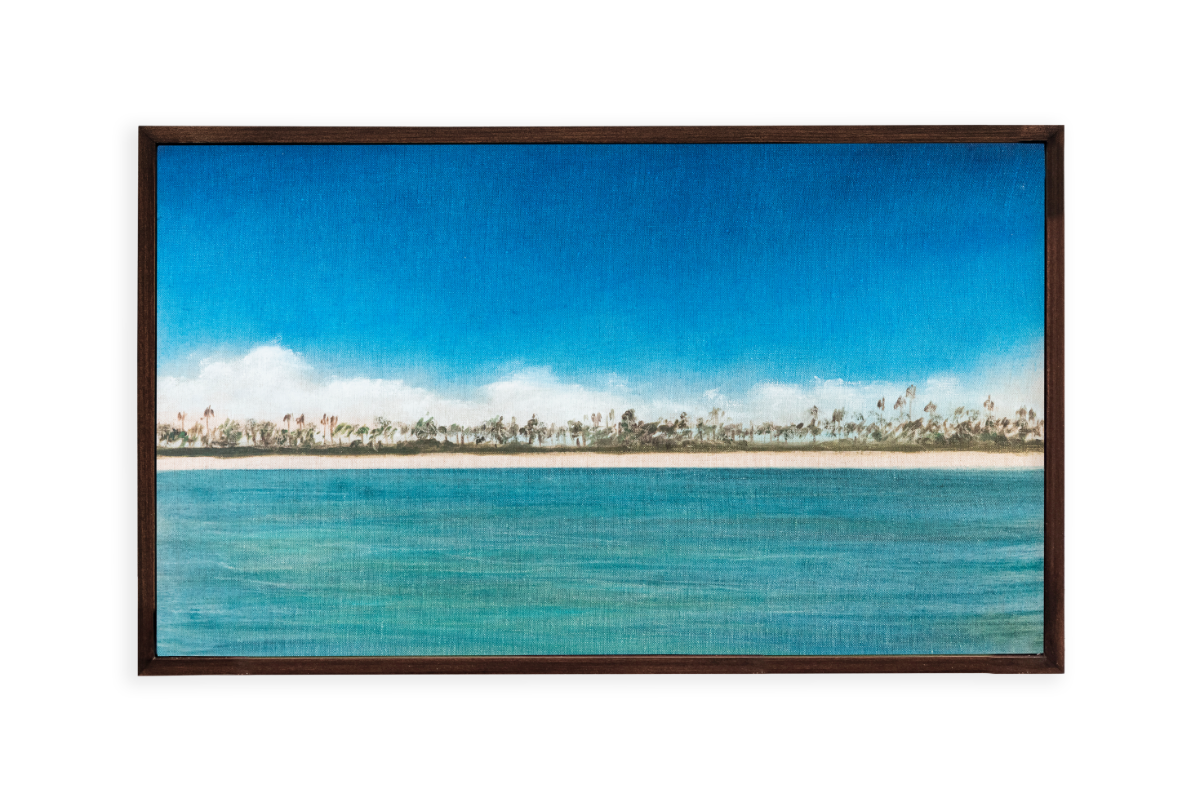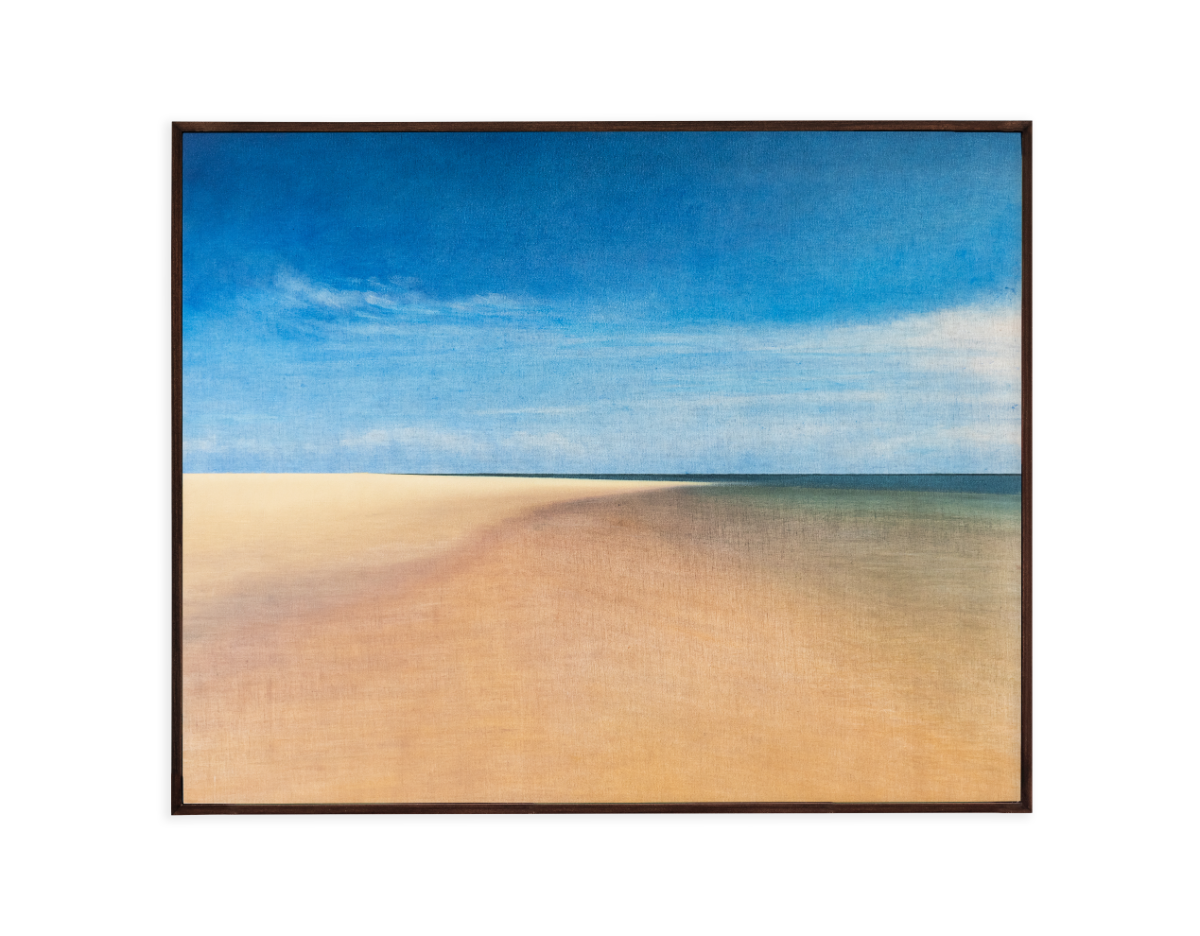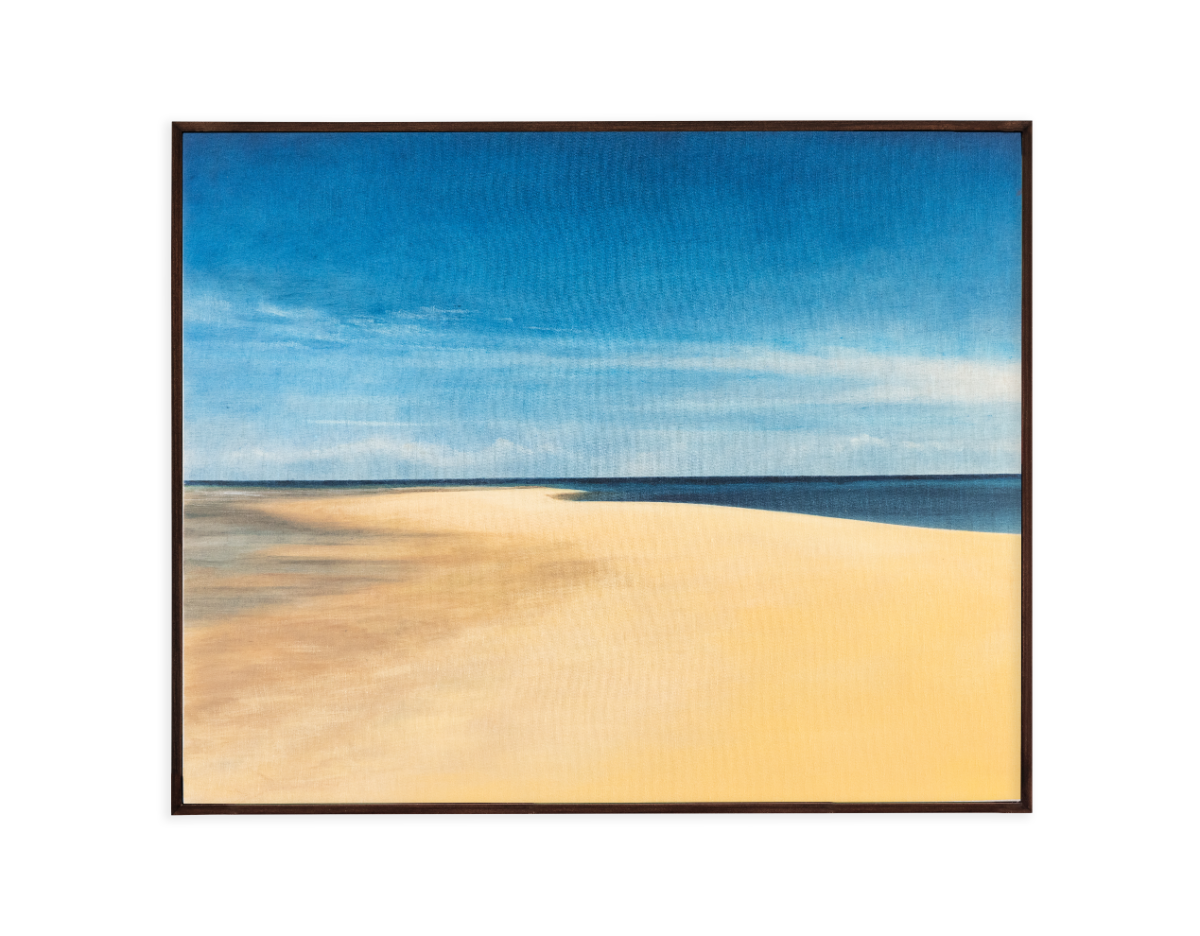The landscape, often confused with nature, establishes intimate contact with the externality of individuals in singularities with the world. Its presence in artistic productions consists of a visual perception beyond mere imagery and thematic presentation, but above all, it refers to the production of sensibility in the relationship with reality.
This relationship is found in the works by Gabriel Giucci, who presents, in his solo exhibition Palmeira Arcaica, a set of canvases that herald a primitive place of the landscape. Through expressive brushstrokes, the productions evoke nature for a poetic reinterpretation in the artist’s walks along the Bahian coast.
If before it was possible to trace emblems of a diverse and unequal country through images of fauna, monuments, and portraits of Brazilian politicians in Giucci’s paintings, now we have a poetic reencounter with Brazil facing its origins, in its primordial essence with the natural.
The artist’s paintings attract the gaze and awaken the senses by offering the possibility of revisiting a natural and clean past, where memory, loneliness, and nostalgia invade the thoughts to understand that past and present can be intertwined. Thus, we have in the landscapes of the exhibition Palmeira Arcaica a perception of the present established by the memory of the past that, together, deliver to us a reminder of how individuals of this land related to the depicted nature.
These paintings deliver a visual past that infiltrated through the cracks of the present to be reinterpreted contemporaneously. The walks amidst the winds, seas, plants, and lands of the Bahian coast provided the artist with the possibility of dealing with the return to contact with nature, poetically updating the present.
It is these walks that amplify the paintings and thereby sharpen sensitivity, allowing us to see the dusk and dawn in fields of color, those that create chromatic spaces of the essential order to expand the landscape.
Thus, we visualize in potency, texture, matter, and spirit: nature. This, which also moves with speed and smoothness in Palmeira Arcaica, speaks of remote times in poetic dimensions constructed from memories of the Brazilian territory, in order to re-elaborate experiences.
Camila Carmo
Master’s degree holder and PhD candidate in Literature and Culture from the Graduate Program in Literature and Culture (PPGLITCULT) at the Federal University of Bahia (UFBA)
